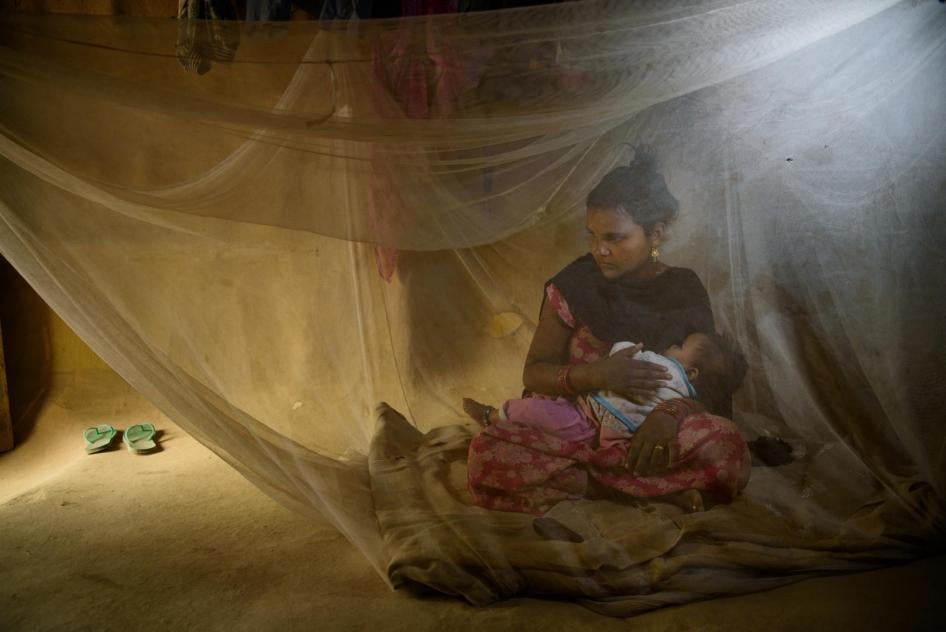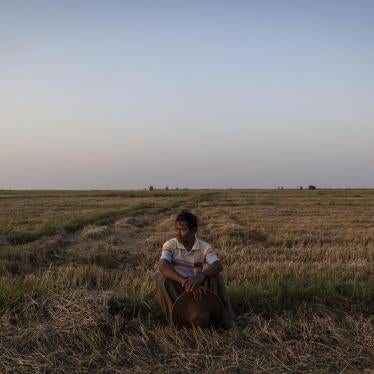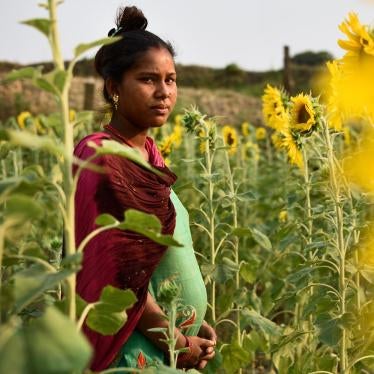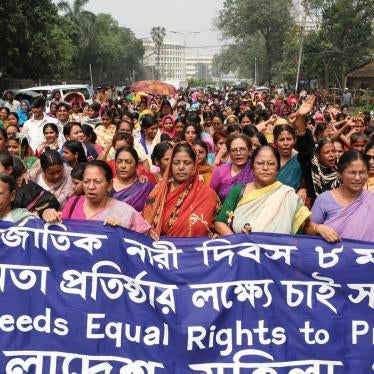|
Commentary
Nepal’s Child ‘Love Marriages’ Need Regulation Too
Published in:
Women's eNews
Ramita’s choice is a reflection of how marriage-related decisions are changing in South Asia. Although arranged matches are still the norm for many, young adults are increasingly likely to choose their own spouse. For some, this is a welcome break with tradition. Research shows that as women gain more education, their control over their choice of husband also increases – and more girls are going to school across the region.
But in the villages of Nepal, where I investigated early marriage for a new Human Rights Watch report, increasing numbers of children are choosing to wed. Arranged child marriages may be declining, but this achievement is threatened by a rise in “love marriages” by children. Though in these cases a girl may be choosing to get married, these child marriages can still come with their own devastating consequences, including leaving school early, poverty, health risks and an elevated threat of domestic violence.
Nepal’s government has pledged to end all child marriage by 2030, and to develop a plan to meet that goal. But in our interviews with police, educators and health workers, they often seemed to view love marriages as outside this effort. “If kids fall in love, what can the government do?” more than one local official said. But they must step up.
Teen romances remain largely socially unacceptable in rural communities, particularly communities that are marginalized and poor due to caste or ethnicity. And so stigma encourages haste. Courtships can be very short, as teens and pre-teens often skip past “dating” and go straight to marriage. Several girls we interviewed had met boys over the phone—after a friend passed along a phone number, or even after a wrong number—and the couple eloped the first time they met.
Complex Answers
What prompts children to jump into a life-long commitment with someone they barely know? The answers are complex. Romance sometimes—but not always—played a part, as did the impulsiveness of youth. But in some cases, especially in poor communities, other forces were also at work.
In desperately poor families, where girls go hungry, they sometimes marry a boy or man they think can feed them. Others flee abuse at home, or grueling work. Girls who know their parents have planned an arranged marriage for them sometimes rebel in the only way possible: by marrying someone else, even though many of them would rather not marry at all until later.
Because dating remains taboo in some communities, gossip can lead to a rushed marriage to “legitimize” a relationship. Lack of information about, or access to, contraception and the dire social consequences of pre-marital pregnancy mean children sometimes marry due to pregnancy or even just the fear of pregnancy. Some girls told me they married because their husband’s parents needed help in the home and so encouraged their son to find a bride.
After Ramita’s father died, her mother remarried, to a man who frequently beat Ramita. Her siblings went to school, but she was forced to stay home and do domestic chores, so she never studied. The family was very poor. “We had difficulty finding two meals every day,” Ramita said. She sought a better life by going to live with a cousin, who introduced her to the boy she married.
Now 19, Ramita, which is a pseudonym we used at her request to protect her privacy, lives with her in-laws and 3-year-old son. Her husband is away most of the year working as a lumberjack in India. When he comes to visit they quarrel and he hits her. “I want to leave him, but I can’t because of my son,” said Ramita. “Had it been a daughter, he would have let her go, but a son is a son.”
Well-Know Consequences
The government may not want to get involved with these types of marriages, but it’s actually clear what it can and should do. The consequences of child marriage are well known and affect girls whether they choose to marry or are forced into it. Children need to be protected from marrying for the same reason there are age limits for other behavior — drinking, driving, joining the army, using a gun: maturity, both physical and psychological, comes gradually, and children need protection as they mature.
The government of Nepal claims to be working to end all child marriages, and this campaign should include children who marry out of love. Doing so will require enforcing the law that bans it, keeping children in school and out of harmful work, increasing access to information about family planning and contraception and, last but not least, giving children information and support so they know the consequences of child marriage and have help finding other options.
Ramita is determined to be the last married child in her family. She says she will allow her son to marry only after he is 20 “so that he does not regret his life as I have.” Nepal’s government should help her keep that promise.
Your tax deductible gift can help stop human rights violations and save lives around the world.
Most Viewed
-
November 25, 2019
A Dirty Investment

-
June 3, 2025
“They’re Ruining People’s Lives”

-
December 21, 2023
Meta’s Broken Promises

-
January 25, 2024
“We’re Dying Here”

-
February 19, 2018
“All We Want is Equality”






